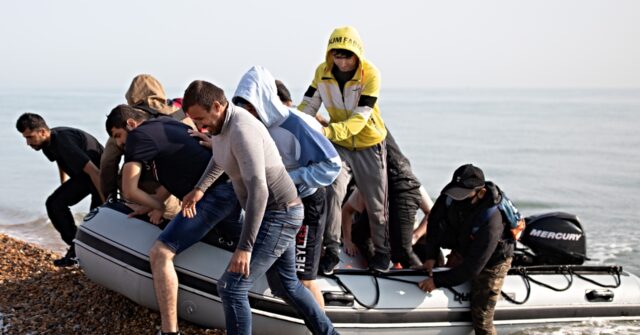A significant arrest took place in Amsterdam on Wednesday, involving a suspected people smuggler believed to be responsible for facilitating illegal migrant crossings of the English Channel. The 44-year-old Turkish national was detained at Schipol Airport during a coordinated operation by the UK’s National Crime Agency (NCA) in collaboration with Dutch and Belgian law enforcement officials. The NCA’s director general for operations, Rob Jones, emphasized the importance of the arrest, labeling it as a major development within one of the agency’s most robust investigations into organized immigration crimes. This operation highlights ongoing international efforts to combat human trafficking and the illegal smuggling of individuals seeking refuge or migration opportunities.
Investigations by the NCA indicate that the arrested man was a pivotal figure in providing small, perilous boats and engines utilized by smugglers operating from Belgium and northern France. He is believed to have orchestrated a supply chain that involved shipping equipment from Turkey, storing it in Germany, and ultimately transporting it to northern France. This operational model underscores the sophisticated networks involved in human smuggling and the challenges faced by law enforcement in dismantling such operations. With the increasing number of individuals making dangerous crossings, the implications of this arrest extend beyond the singular case to broader issues of migrant safety and organized crime.
The arrest was prompted by intelligence reports that the suspect was traveling from Turkey to the Netherlands, which ultimately led to a strategic collaborative effort among various law enforcement agencies. The urgency of the situation reflects a growing concern over the alarming volume of migrants attempting to cross the English Channel. As reported by the Home Office, over 32,000 individuals have successfully reached the UK by boat this year alone. This statistic not only highlights a surge in illegal crossings but also raises questions regarding the effectiveness of current border control measures and the humanitarian aspects of migration.
Upon arrest, it was confirmed that the suspect would likely face legal proceedings in Belgium, as the alleged offenses occurred within its jurisdiction. This aspect of the case illustrates the complexities of prosecuting international smuggling routes and the need for cross-border cooperation in addressing such crimes. The involvement of multiple countries in the investigation signifies the transnational nature of human trafficking and the necessity for collaborative strategies to enhance enforcement and judicial processes across borders.
The NCA’s ongoing investigation spans several years, indicating a sustained commitment to tackling the root factors of organized immigration crime. The agency has reported persistent efforts to disrupt smuggling operations, which not only exploit vulnerable individuals but also pose significant risks to their safety during perilous sea crossings. This arrest serves as a reminder of the broader implications of such criminal activities, including the potential for loss of life at sea and the exploitation of migrants’ desperation for a better life.
In summary, the arrest of the suspected people smuggler in Amsterdam represents a vital step forward in combating organized immigration crime. It underscores the continued cooperation between international law enforcement agencies in addressing the complexities of human trafficking. The increase in dangerous crossings across the English Channel emphasizes the urgency of these efforts, as authorities strive to protect vulnerable migrants while dismantling the networks that facilitate such illicit activities. As the NCA and its partners pursue further investigations and prosecutions, the implications of this case extend beyond individual culpability, shining a light on the broader societal and political challenges surrounding migration.

